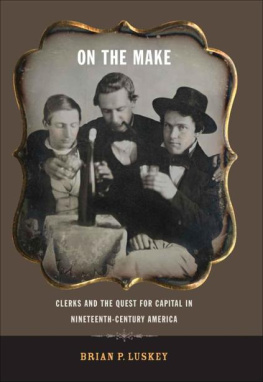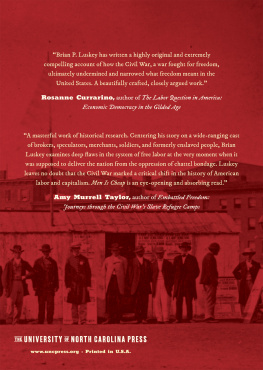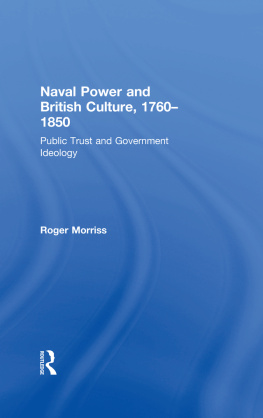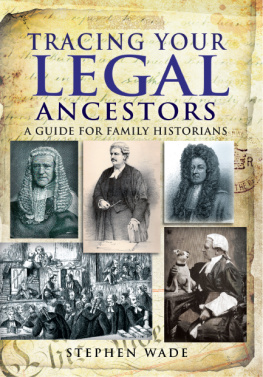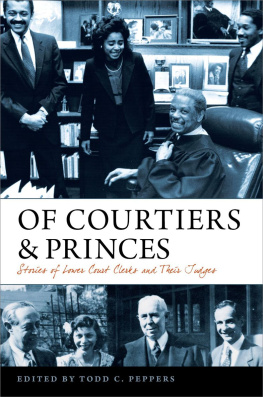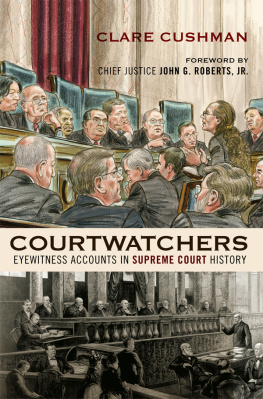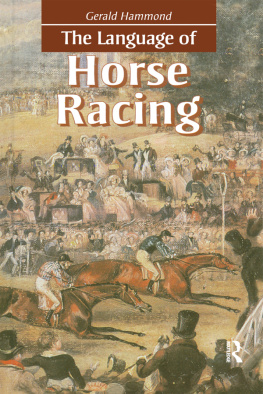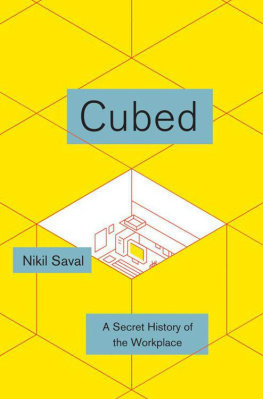On the Make
AMERICAN HISTORY AND CULTURE
General Editors: Neil Foley, Kevin Gaines,
Martha Hodes, and Scott Sandage
Guess Whos Coming to Dinner Now?
Multicultural Conservatism in America
Angela D. Dillard
One Nation Underground: A History of the Fallout Shelter
Kenneth D. Rose
The Body Electric: How Strange Machines Built the Modern American
Carolyn Thomas de la Pea
Black and Brown:
African Americans and the Mexican Revolution, 19101920
Gerald Horne
Impossible to Hold: Women and Culture in the 1960s
Edited by Avital H. Bloch and Lauri Umansky
Provincetown: From Pilgrim Landing to Gay Resort
Karen Christel Krahulik
A Feeling of Belonging:
Asian American Womens Public Culture, 19301960
Shirley Jennifer Lim
Newark: A History of Race, Rights, and Riots in America
Kevin Mumford
Childrens Nature: The Rise of the American Summer Camp
Leslie Paris
Raising Freedoms Child:
Black Children and Visions of the Future after Slavery
Mary Niall Mitchell
Americas Forgotten Holiday: May Day and Nationalism, 18671960
Donna T. Haverty-Stacke
On the Make:
Clerks and the Quest for Capital in Nineteenth-Century America
Brian P. Luskey
On the Make
Clerks and the Quest for Capital
in Nineteenth-Century America
Brian P. Luskey

NEW YORK UNIVERSITY PRESS
New York and London
www.nyupress.org
2010 by New York University
All rights reserved
Library of Congress Cataloging-in-Publication Data
Luskey, Brian P.
On the make : clerks and the quest for capital
in nineteenth-century America / Brian P. Luskey.
p. cm. (American history and culture)
Includes bibliographical references and index.
ISBN-13: 9780814752289 (cl : alk. paper)
ISBN-10: 0814752284 (cl : alk. paper)
1. ClerksUnited StatesHistory19th century.
2. United StatesCommerceHistory19th century.
I. Title.
HD8039.M4U554 2009
305.556dc22 2009026862
New York University Press books are printed on acid-free paper, and their binding materials are chosen for strength and durability. We strive to use environmentally responsible suppliers and materials to the greatest extent possible in publishing our books.
Manufactured in the United States of America
10 9 8 7 6 5 4 3 2 1
Contents
Acknowledgments
The striver within me would like to make an ambitious claim: I wrote this book all by myself. And its true; I did. Yet like the creed of self-making, such a statement obscures the fact that I relied upon the assistance of many people and institutions as I researched, wrote, and revised. I am pleased to have the opportunity to thank them here for their support, though I will try not to sound like an obsequious counter jumper as I do so.
The three people who have done the most to shape the questions I try to answer in this book are Jonathan Prude, Scott Sandage, and Wendy Woloson. Jonathan, my graduate school mentor, encouraged and challenged me in equal measure as I wrote this book. I really like this, he would say in response to a chapter draft, but then admonish me, only half-jokingly, to change everything. His keen suggestions on several versions of this book have immeasurably improved the final product. Scott, coeditor of New York University Presss American History and Culture Series, read the manuscript twice with extraordinary care and gave me priceless feedback that strengthened the books organization and argument. Wendy has been a close friend of this book and its author for a long time now, and our discussions about new directions in economic history inform every page that I write. I thank all three of them for their friendship and generosity.
I am grateful to several institutions for the funding that made researching and writing this book possible, and wish to thank several people associated with those institutions for guiding me through research collections and otherwise providing invaluable aid: the Library Company of Philadelphia (Jim Green, Connie King, and Charlene Peacock), the McNeil Center for Early American Studies (Amy Baxter-Bellamy), the American Antiquarian Society (Joanne Chaison and Caroline Sloat), and the New-York Historical Society. West Virginia Universitys Eberly College of Arts and Sciences kindly provided a publication subvention.
I am particularly fortunate to have spent two years in Philadelphia as a fellow at the McNeil Center and the Program in Early American Economy and Society at the Library Company. I thank directors Dan Richter and Cathy Matson, respectively, for fostering the scholarly community that helped expand this books historiographical horizons. At conference meetings, I have profited from the advice of several historians who have commented on my work. I thank Howard Chudacoff, Christopher Clark, Toby Ditz, Faye Dudden, Ann Fabian, Dallett Hemphill, Graham Hodges, David Jaffee, Jane Kamensky, and the late Susan Porter Benson for their efforts on my behalf. Walter Friedman, editor of Business History Review, and Roderick McDonald, editor of Journal of the Early Republic, generously granted me permission to publish substantially revised versions of two of my articles. I also appreciate the help of two history department chairs, Barry Rothaus of the University of Northern Colorado and Elizabeth Fones-Wolf of West Virginia University, who have done their utmost to give me the time and resources necessary to see this project to completion. I feel especially lucky to have published this book with New York University Press. I thank Eric Zinner and Ciara McLaughlin for shepherding me through the process, and Martha Hodes, Amy Greenberg, and an anonymous reviewer for making inspired suggestions that significantly enhanced the manuscript.
Friends and colleagues sustained me as I worked on this project. Hayes and Kelly Trotter planned the games in and around Wash Park that helped me escape the daily grind. Ben Irvin gave me a title for the book and let me borrow many of his brilliant ideas for making the text better. I thank Tom Bredehoft, Derek Buckaloo, Paul Erickson, Josh Greenberg, Ellen Hartigan-OConnor, Leslie Harris, Rose Hathaway, Erin Jordan, Cathy Kelly, Michael Kramp, Amy Lang, Ann Little, Michelle McDonald, Roderick McDonald, Jennifer Meares, Stephen Mihm, David Miller, Paul OGrady, Emily Satterwhite, Kris Shepard, Nick Syrett, Rob Widell, and Amy Wood as well for taking the time to improve my work and make writing this book a lot of fun.
My grandmother Doris Peck Warner Daiger and uncles Pete Luskey and Jim Peck taught me early in life to value education and scholarship. My sister Kate Jacobson is a talented teacher and writer who has been an inspiration and a good friend to me. Other members of my family have made sacrifices so that I could write this book. They kindly gave me places to stay near archives (dont even think about moving, people!), encouraged me with their interest in what I was doing, and not so silently wondered how it could ever take so long to publish a book. So to youPaul Jacobson, Eleanor and Tom Roney, Tina and Jack Peters, Sharon Rossi and John Majkut, Gail and Kurt Warner, Valerie and Alex Lanham, Adrienne and Andrew Lopez, Laura and Tim Folk, Kelly and Damon Rossithank you for your loving support.
This book is dedicated to Barbara and Patrick Luskey, my parents and best friends. They got me started on my journey toward being a historian many summers ago on a family trip to Gettysburg, Pennsylvania. Knowing that I can never repay them for the opportunities and love they have given me, I can only say thank you for being with me every step of the way.
Next page
